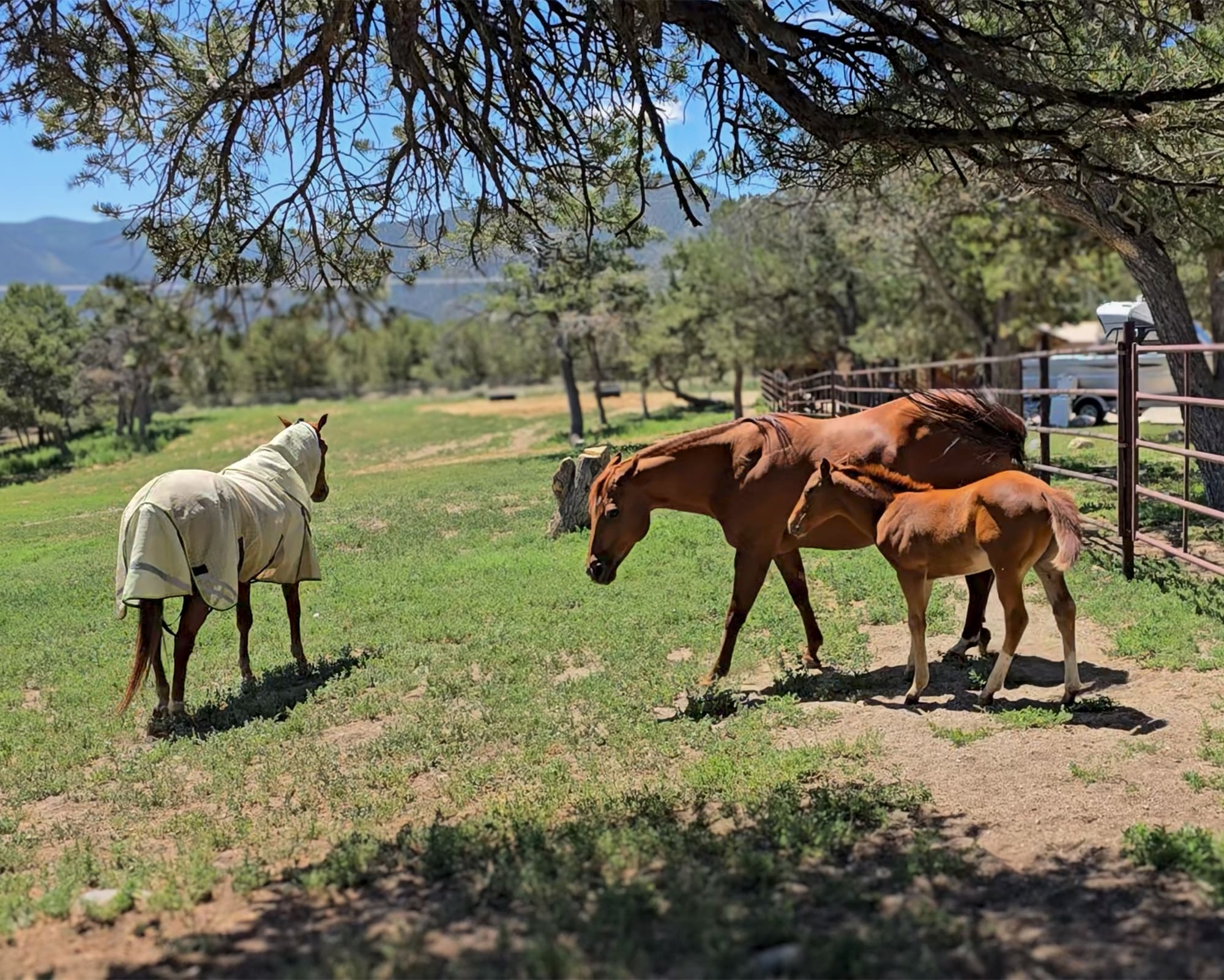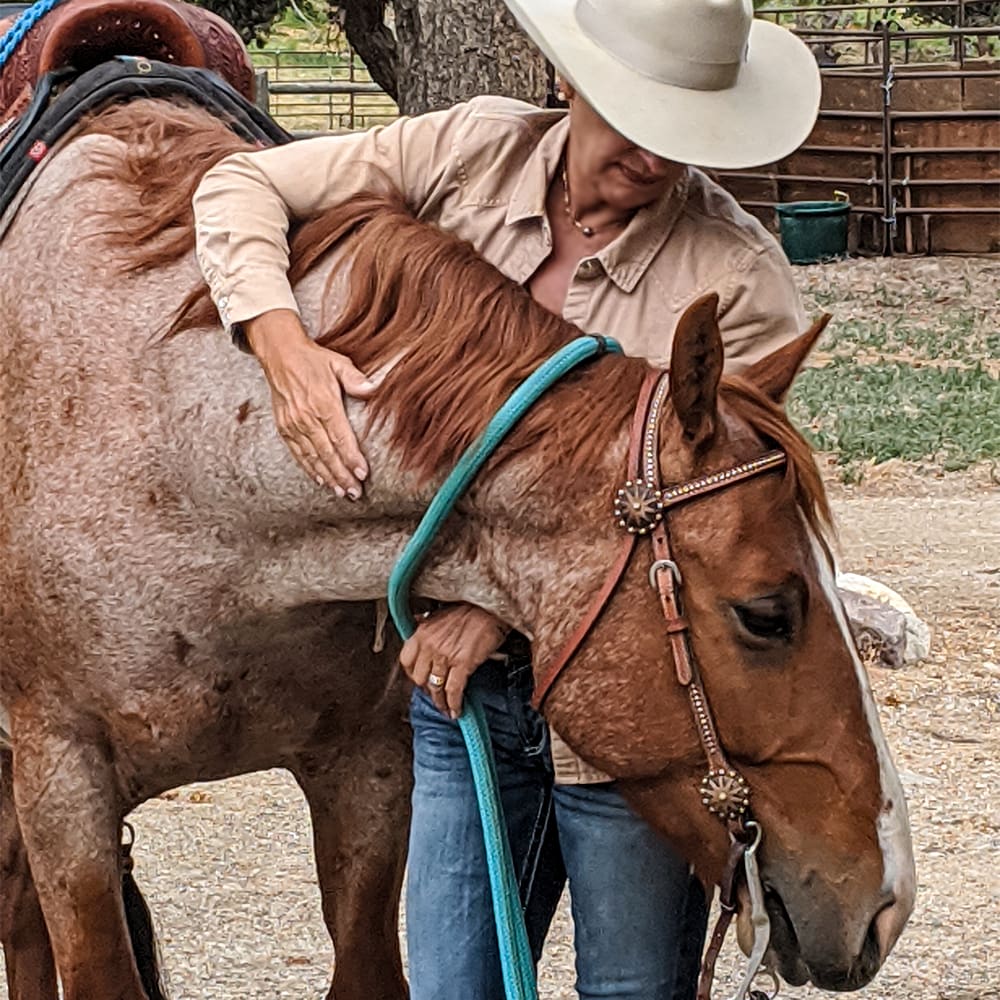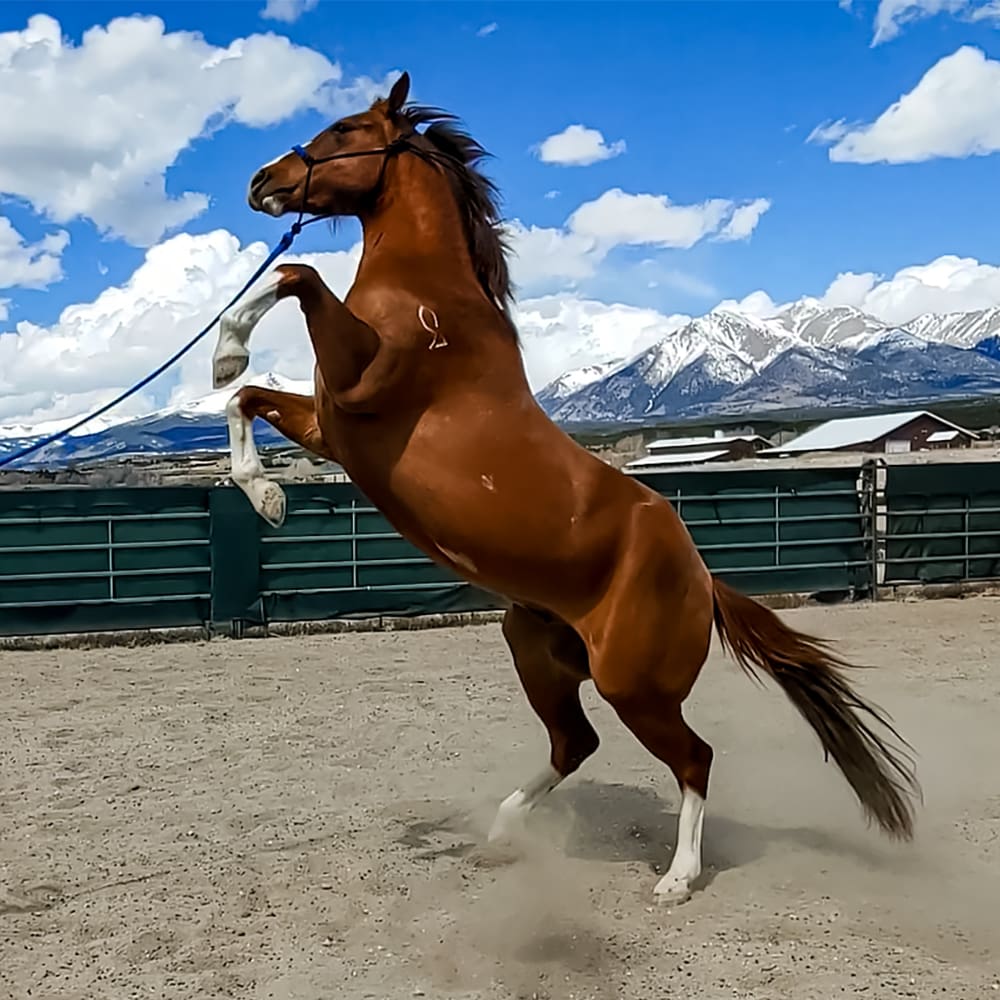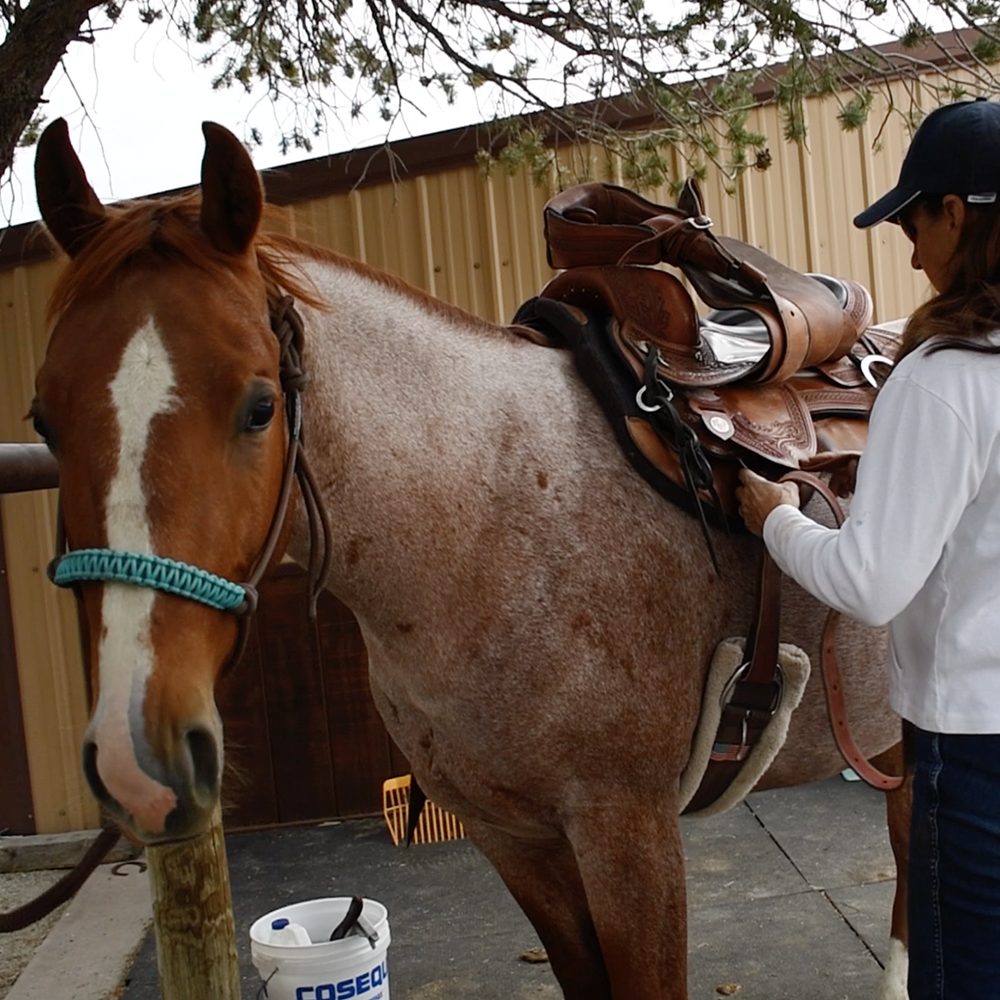This week starts all-new episodes of Horse Master, which were filmed at a beautiful location in the South Carolina “Low Country,” where they filmed Forest Gump. Although we were filming in April, in keeping with all of our shoots so far, it was unseasonably cold and windy, so my illusions of evening walks on the beach unfortunately never became a reality.
This first episode is about a lovely young warmblood—I think he was Anglo-Trakhener—who had learned the dirty habit of ripping his nose away and running off whenever he wanted. Fortunately most horses never figure out that if they can get their body positioned directly away from you that there is absolutely nothing you can do to stop them, but “Cosmo” had figured this out. Have you ever had a horse that did this?
When a horse learns this trick, you’ve got a big problem and there’s absolutely nothing you can do to unlearn it—he’ll know this trick forever. But you can dissuade him by making him very uncomfortable when he attempts to get into position, but sometimes this takes a considerable amount of pressure—more pressure than many people are with able or willing to dish out. Depending on how much he has been rewarded for this bad behavior in the past and how often he has experienced success with this tactic, it may take a little pressure or a lot, but you always have to find the amount of pressure that motivates a horse to change. This is a very fundamental concept in training horses—or any animals (including people) for that matter.
Some of you may remember the trailer loading episode that aired recently. That horse had also learned this dirty trick (unbeknownst to us until we started filming). I had to put a chain on his nose to get better control of him and since this problem wasn’t directly related to trailer loading, I did a little schooling off-camera so that we could go on with the trailer loading. Once he realized he was not going to be able to get away from me, and that it would be very unpleasant for him if he tried, he totally gave it up and in short order he was walking right in the trailer.
In “The Great Escape,” which is airing for the first time this week, Cosmo turned and ran off when the owner longed him, simply because he didn’t want to do that and didn’t think he had to do anything he didn’t want to. As a 4 y/o, he was just being started under saddle and hadn’t really learned a work ethic yet (an important argument for not waiting TOO long to start a horse). On top of that, raised by his owners, he was quite spoiled and thought he pretty much ruled the roost. This is one reason why I probably wouldn’t buy a horse that had been raised by amateurs—chances are, they’ve been spoiled. And while I can certainly un-spoil them (pretty quickly actually), I’d prefer a horse that has been taught good manners from the beginning (or not handled at all) and a horse that has not LEARNED and had success with bad behaviors.
The funny thing is that Erika, Cosmo’s owner, is actually a good and very accomplished rider and her other horses are well-mannered and respectful of her (but she did not raise them). But for some reason, she had abdicated her authority to Cosmo and he was taking full advantage of her. Not because he is a mean or wicked horse—quite the opposite in fact—but because when there is a void of leadership, the horse will always take over.
I think Erika turned a new leaf with Cosmo after our two days together. All she needed to do was step up to the plate and show some leadership to the horse and he instantly responded.
Horses are amazing that way—if we can change the person, the horse almost always responds. Have you ever seen someone (or experienced for yourself) a situation where the human is abdicating authority to the horse? Usually a little assertiveness training is in order, and a better understanding of how horses view leadership and how dominance is created. Sometimes our human brain is our worst enemy. But if you can get the human to act like a leader, there are usually instant results. Some people come by leadership and authority naturally, others have to work it. Where do you fall into that picture?
As for the dirty trick of ripping the nose away and running off, the main prevention is to be proactive and not let him turn his nose to begin with. In fact, I’d make a horse with this habit always carry his nose slightly turned toward me, whether I was leading or longeing or doing anything else. Of course, going back and doing some groundwork with Cosmo and teaching him good ground manners would be a good start. Erika left the shoot with a copy of my video on ground manners, Lead Line Leadership, and I know she and Cosmo are on the right track now.
Enjoy the ride!
Julie
Become a Library Member HERE for tons of training information and all the Horse Master Episodes.



